After Nvidia, restrictions on GPU exports to China affect AMD
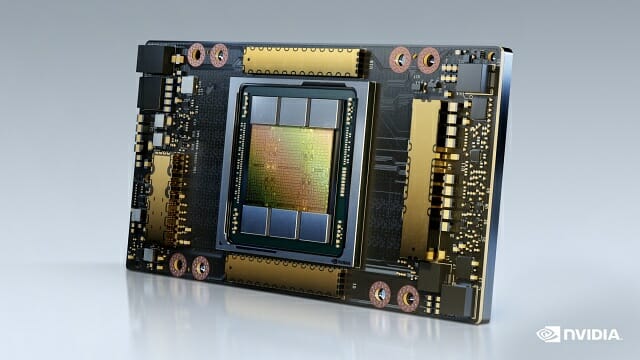

The US ban on high-performance GPU exports to China began on November 17. This is enough to put an end to the commercial relations between the Middle Kingdom and the main GPU manufacturers such as Nvidia and AMD.
The targeted products are the NVIDIA A100, A800, H100, H800, L40, or L40S GPUs. All GPU products mainly used to train AI models and practice HPC (High Performance Computing). The GeForce RTX 4090, a consumer graphics card for PC gamers is also concerned.
Specifically, these products are no longer available for sale in China without a special license from the Bureau of Industry and Security of the US Department of Commerce.
Extension of the ban
And the PC and server providers Dell Technologies has extended this list to AMD GPUs. This includes GPUs for desktop PCs, such as the Radeon RX 7900 XTX, and the Instinct MI300X GPU, which is scheduled for official release next month.
Initially, last October, the US government announced restrictions only on GPUs such as the Nvidia A100 and H100, Nvidia’s most high-end. Nvidia then developed and supplied A800 and H800 chips, which limit their maximum bandwidth below export restrictions.
For example, the A100 graphics chip has a throughput of 600 GB/s, which is above the threshold. But the A800 chip reduces it to 400 GB/s, which is below the threshold.
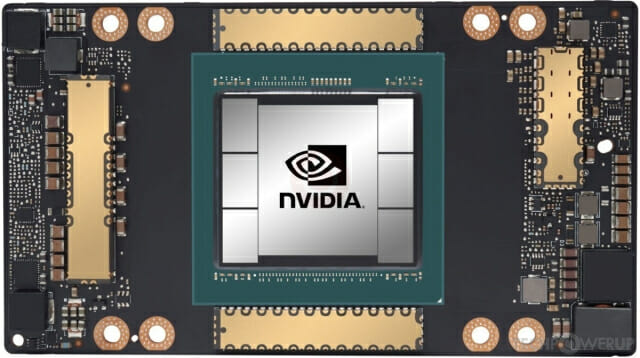
A800 GPU designed by Nvidia for export to China, with certain restrictions on the maximum bandwidth (Photo: Nvidia)
However, these customization projects were nullified when the US government further strengthened export control standards.
“The A800 /H800 will also not be able to supply the Chinese market,” Nvidia said in a document filed with the Securities and Exchange Commission (SEC) in mid-October.
Dell Technologies extends export ban to AMD products
Dell Technologies recently issued a notice to 23 countries and territories, including China, Hong Kong, Russia and North Korea, asking them to stop selling its high-performance GPU products. “If your customer is headquartered in a targeted region, you must stop selling the product and follow the review procedure,” the notice says.
Dell Technologies has added AMD Radeon products to the list of GPUs subject to the export ban to China. (Photo: Baidu)
On the AMD side, the products prohibited for sale are the acceleration chips for servers, MI210, MI250, MI250X and MI300.
The Radeon Pro W7900 graphics card, a GPU for workstations, and the Radeon RX 7900 XTX/XT, graphics cards for desktop PCs, are also concerned.
The hack in China to deal with this unprecedented situation
Some Chinese sellers are therefore disassembling GeForce RTX 4090 graphics cards that they bought before the export ban came into force and modifying it to use them in servers.
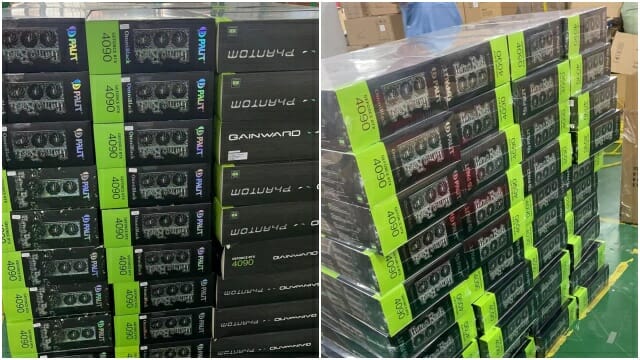
On November 22, a photo of dozens of disassembled RTX 4090 graphics cards was posted on a Baidu forum in China.
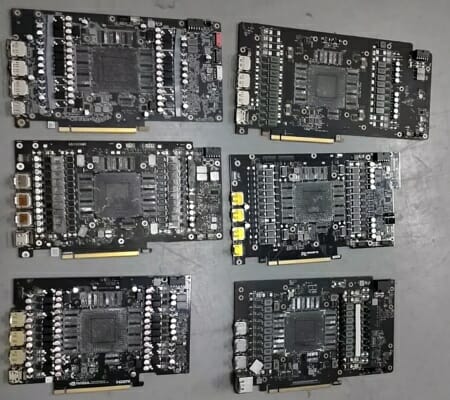
The GPU and the memory of the original cards are removed, and replaced on new “homemade” cards to reduce the footprint. These modified graphics cards would then be shipped to Chinese companies specializing in AI.
The prices of graphics cards in China strongly affected
The accumulation of stocks of graphics cards by Chinese companies affects the domestic market of this type of product. The price of a GeForce RTX 4090 graphics card was around 1750 euros at the end of October, but now it has risen to more than 2100 euros, an increase of 350 euros.
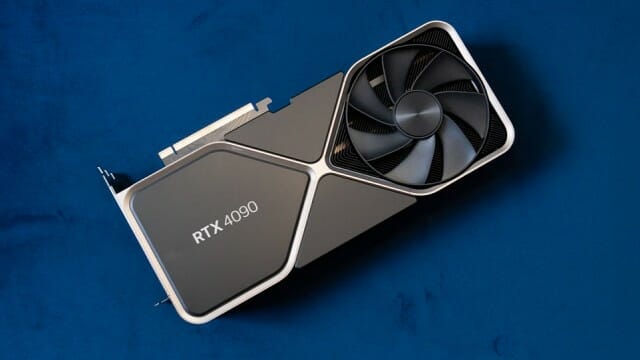
“The Chinese market accounts for 25-30% of our sales of AI products, and we expect sales to decrease due to US government regulations,” Nvidia said when announcing its results on November 21.
AMD, one of the leading GPU manufacturers, is also likely to be affected by AI-related sales in the Chinese market. The company’s next AI accelerator model, the Instinct MI300 series, which will be officially launched at the beginning of December, is also in the crosshairs of the regulatory authorities in the United States.
Source: “ZDNet Korea”








